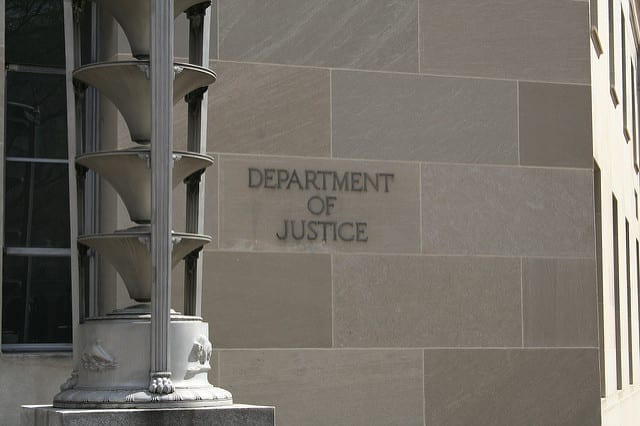The Trump administration recently restricted the way federal agencies use guidance documents, an action which could prevent the government from launching litigation against companies accused of violations.
Guidance documents, writes The New York Times, create a standard interpretation of various laws for government officials. When companies find themselves hounded for running afoul of the legal system, they’ve often broken regulations laid by guidance documents.
The consequences could be sweeping. Defense lawyers interviewed by the Times say that diminishing the role of guidance documents could give attorneys a ‘powerful tool to fend off allegations of wrongdoing against their clients.’
Created by high-ranking Justice Department official Rachel L. Brand, the new policy falls in line with one of President Trump’s most repeated campaign promises – a reduction in government regulations and red tape.

The Times say it’s significant because federal agencies have compiled hundreds of guidance documents pertaining to healthcare, the environment, and education.
Diverging from a decades-long policy, Brand said the Justice Department will no longer “use its enforcement authority to effectively convert agency guidance documents into binding rules.” Additionally, she added that Justice Department lawyers representing federal agencies in court “may not use noncompliance with guidance documents as a basis for proving violations of applicable law.”
Brand’s policy follows other department heads’ attempts to cut back on the interference of guidance documents.
In December, Secretary of Education Betsy DeVos rescinded 72 policy documents – many of which outlined the rights of students with disabilities in public and private schools. Deemed “unnecessary” and “outdated,” the de facto rules governed how districts could use federal money earmarked for special education.
DeVos – who’s been no stranger to controversy since her tenure as secretary of education began – also struck down a guidance document that let transgender students use restrooms in accordance with their gender identity.
Such matters, DeVos said, should be left up to the individual determination of states and districts.
Now that the Justice Department relieved itself of enforcing such burdensome lines of red tape, businesses can act with less of an overhead burden from the federal government. Global law firm Morgan Lewis was quoted by the Times as saying that it “provides needed relief” for regulated industries, “giving them greater opportunity to push back against enforcement theories” outlined in guidance documents.
But civil rights lawyer Barry L. Goldstein said the policy shift is “extraordinary,” essentially “stepping away from guidelines that have been essential for the effective enforcement of civil rights laws for 40 years.”
“The government has successfully used the guidelines to establish violations of fair employment law before the Supreme Court and other courts,” he said.
Nevertheless, the change found its champion in the Chamber of Commerce, which specifically praised the policy as a long time coming, citing the “overzealous enforcement” of the False Claims Act by federal officials.
Sources
Administration Imposes Sweeping Limits on Federal Actions Against Companies
DeVos rescinds 72 guidance documents outlining rights for disabled students
Justice Department rolls back guidance on fining poor defendants


Join the conversation!